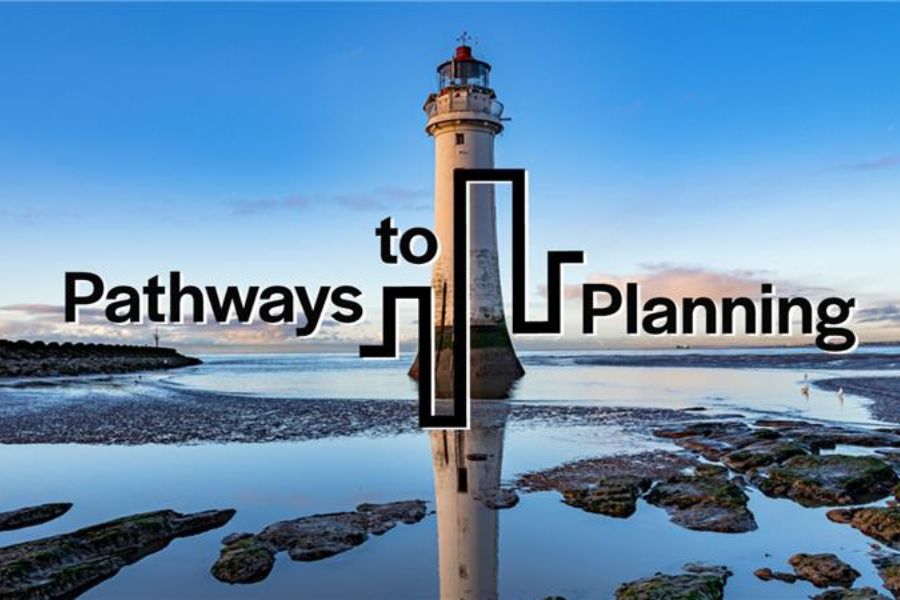
So, what is a planner? What are planners responsible for, and why should you consider planning as a lucrative career choice?
Here we will outline the responsibilities of local government planners, career progression opportunities, areas of speciality, and most importantly, why you should consider a career in planning with the Pathways to Planning scheme.
What is local government planning?
Planning is a fundamental process in local governments across the UK, with planners having the power to make systematic and thoughtful decisions for the future.
This can include identifying goals, creating comprehensive development strategies for councils, and allocating publicly funded resources to achieve the desired outcomes for the benefit of the community.
Planners harness their creative minds and decision-making abilities to progress thoughtful, sustainable, and innovative spaces that champion the needs of the communities they serve.
“Championing the greatest needs of the community is one of the most rewarding aspects of being a planner in local government.”
Why should you choose a career in planning?
Careers in planning provide opportunities to shape and influence the future, contributing meaningfully to the immediate and long-term development of communities and local businesses.
Collaboration is key. As a planner, you are required to work across numerous departments, such as urban development, environmental sustainability, and project management to move forward proposals for housing developments, infrastructure, and area maintenance.
The influence of planners goes beyond the physical structure of the built community to influence the way people live, work, study and enjoy their local area. With this authority comes the responsibility to ensure the creation of inclusive spaces, serving various groups and advocating for the needs of every person.
A highly diverse and exciting profession, the work is fast-paced and driven by innovation and long-term sustainability goals, so if you are enthusiastic about making a tangible impact on the world and shaping the future, a career in planning may be the perfect fit for you.

Introducing the Pathways to Planning Scheme
“Working as a Planner in local government allows you to see the difference your work has in the local area.”
Pathways to Planning is a graduate programme designed to discover talented individuals and provide a direct path to an exciting and fulfilling career in planning.
The scheme welcomes graduates from all backgrounds, universities, and all degree disciplines, aiming to recruit graduates who are representative of the diverse communities councils serve.
The three-year work contract offers a great salary (£24-37k), generous annual leave allowance and flexible working opportunities, with several councils participating across England and Wales.
What does career progression look like in planning?
• Graduate Planner – Entering the world of planning as a graduate planner, you will have obtained your undergraduate degree and start working towards your RTPI-accredited master’s degree. Using a combination of the skills you acquired throughout your degree, and your interest in making an impact on the local community, you will tackle various projects while receiving support from a larger team and benefiting from a dedicated mentor to help you develop professionally.
• Planning Officer – Upon completing the Pathways to Planning programme, you will have gained three years of work experience with a council and obtained a master’s degree in planning. Next step – Planning Officer. In this role, you will enjoy a higher salary with incremental increases annually, as well as taking on increased responsibilities. This position will allow you to finalise your RTPI accreditation with the ongoing support of your council.
• Planning Specialist – A council's planning service has several departments operating independently (or collaboratively based on the council's size, goals, and staffing). Planners often gravitate towards specific areas of interest, specialising in one aspect, while some navigate between different disciplines throughout their careers. The Pathways to Planning programme ensures graduates gain exposure to various work experiences, enabling them to identify their niche within the planning field (archaeology, heritage, urban design, ecology, transport, climate change and environmental health matters).
Transferable skills for a career in planning
Whether you are taking your first steps after graduation, or making a career change, you will have several of these transferable skills that will benefit you when it comes to a role in planning.
• Ethical judgment: making decisions that align with ethical standards and considering the social impact of planning decisions.
• Critical thinking: making informed decisions based on the evaluation of numerous factors and generating innovative ideas and solutions to address planning challenges.
• Teamwork and collaboration: collaborating effectively with diverse teams, stakeholders, and community members.
• Project management: developing plans, setting goals, and organising resources effectively to prioritise tasks and manage time efficiently to meet deadlines.
• Analytical skills: the ability to gather, interpret and analyse data to make informed decisions, identify challenges, develop solutions, and make decisions based on an in-depth analysis.
• Communication skills: drafting reports, proposals and other written documents with clarity and precision, as well as effectively conveying ideas and information in meetings, discussions and presentations.
• Research skills: collecting relevant information from various sources to support planning processes, while understanding trends, demographics and other factors that might influence planning decisions.
Could you be in the next generation of planners?
Find out more about the Pathways to Planning scheme, eligibility, programme structure, learning and development opportunities, and more!
Hear what real planners have to say about the work: https://www.local.gov.uk/pathways-to-planning/career-planning/case-studies




